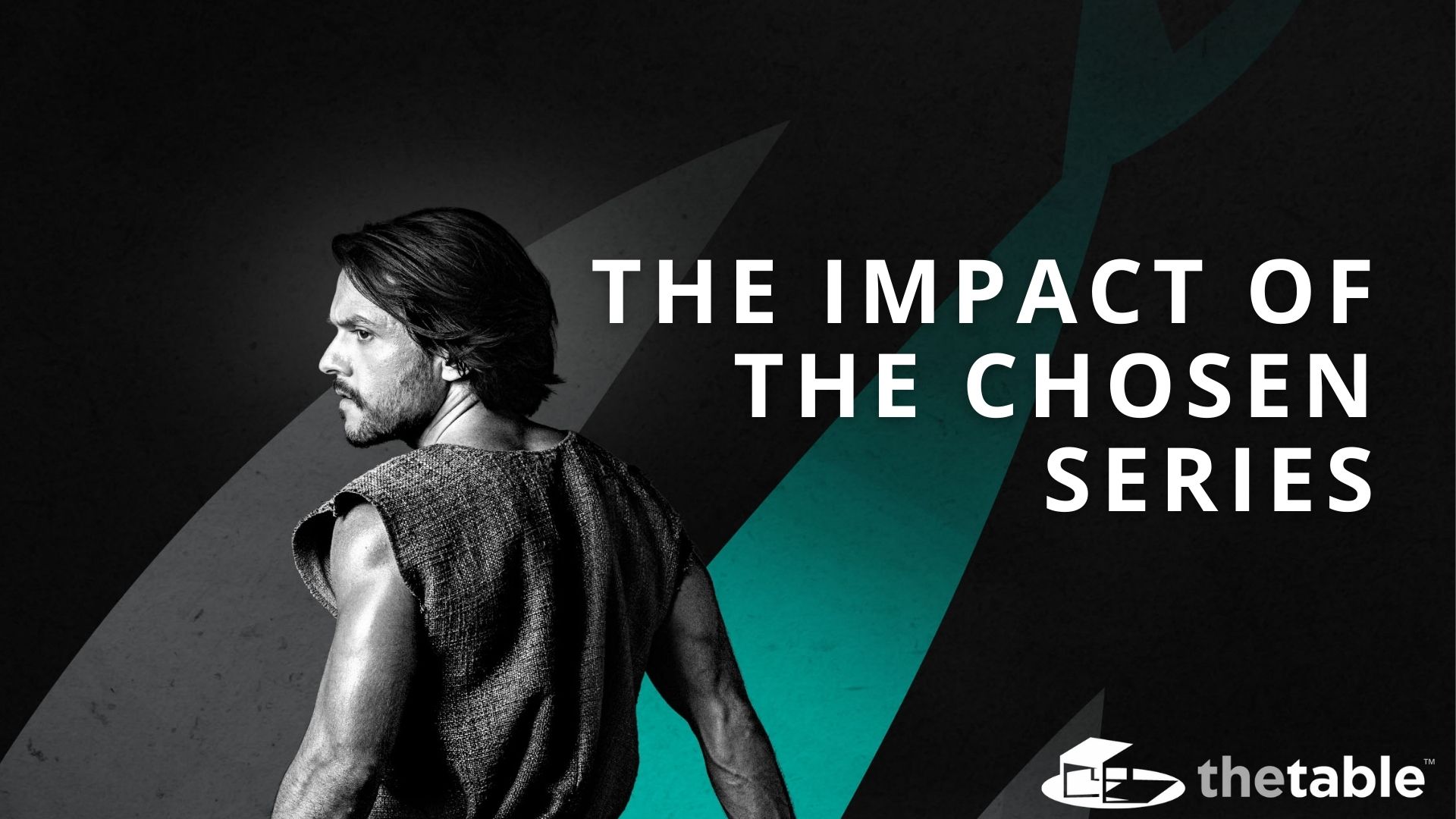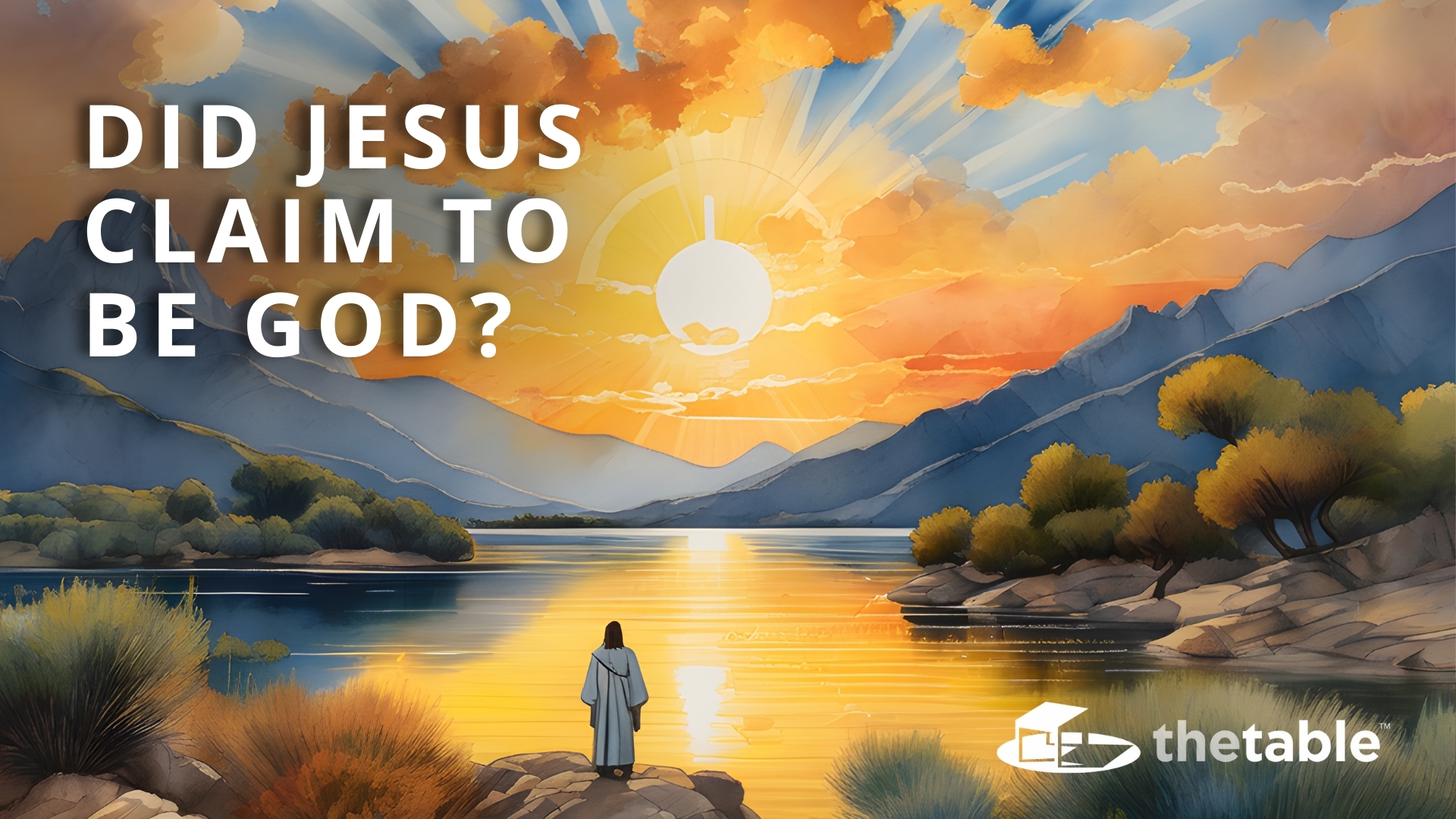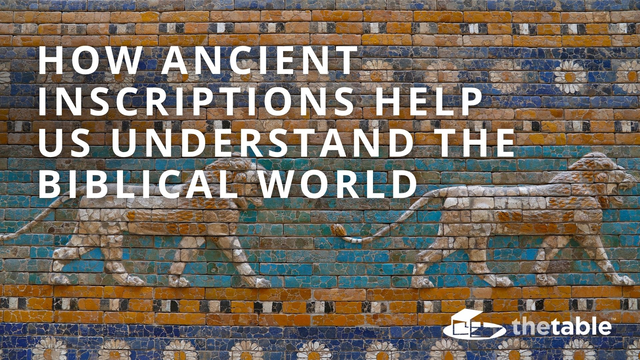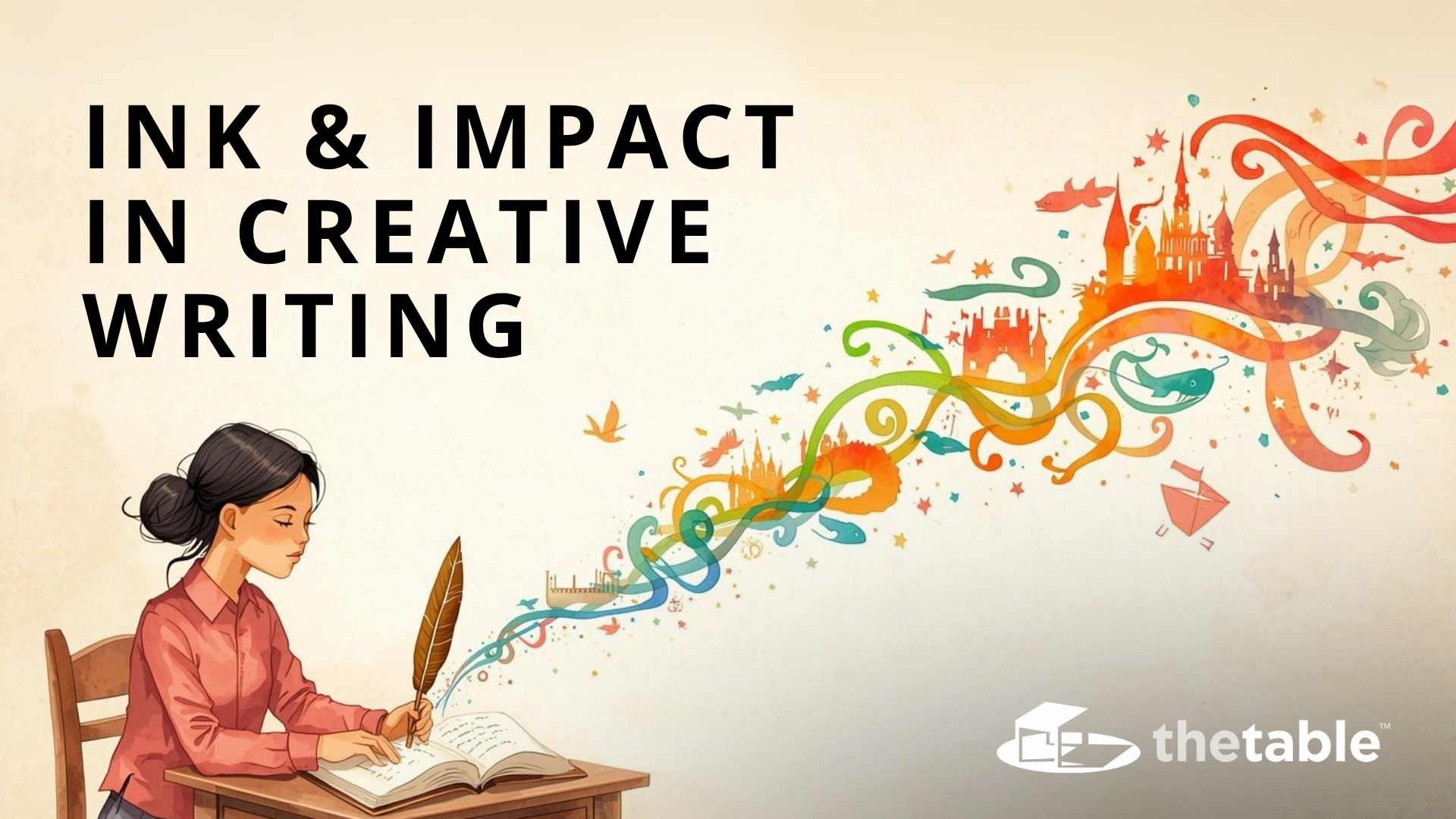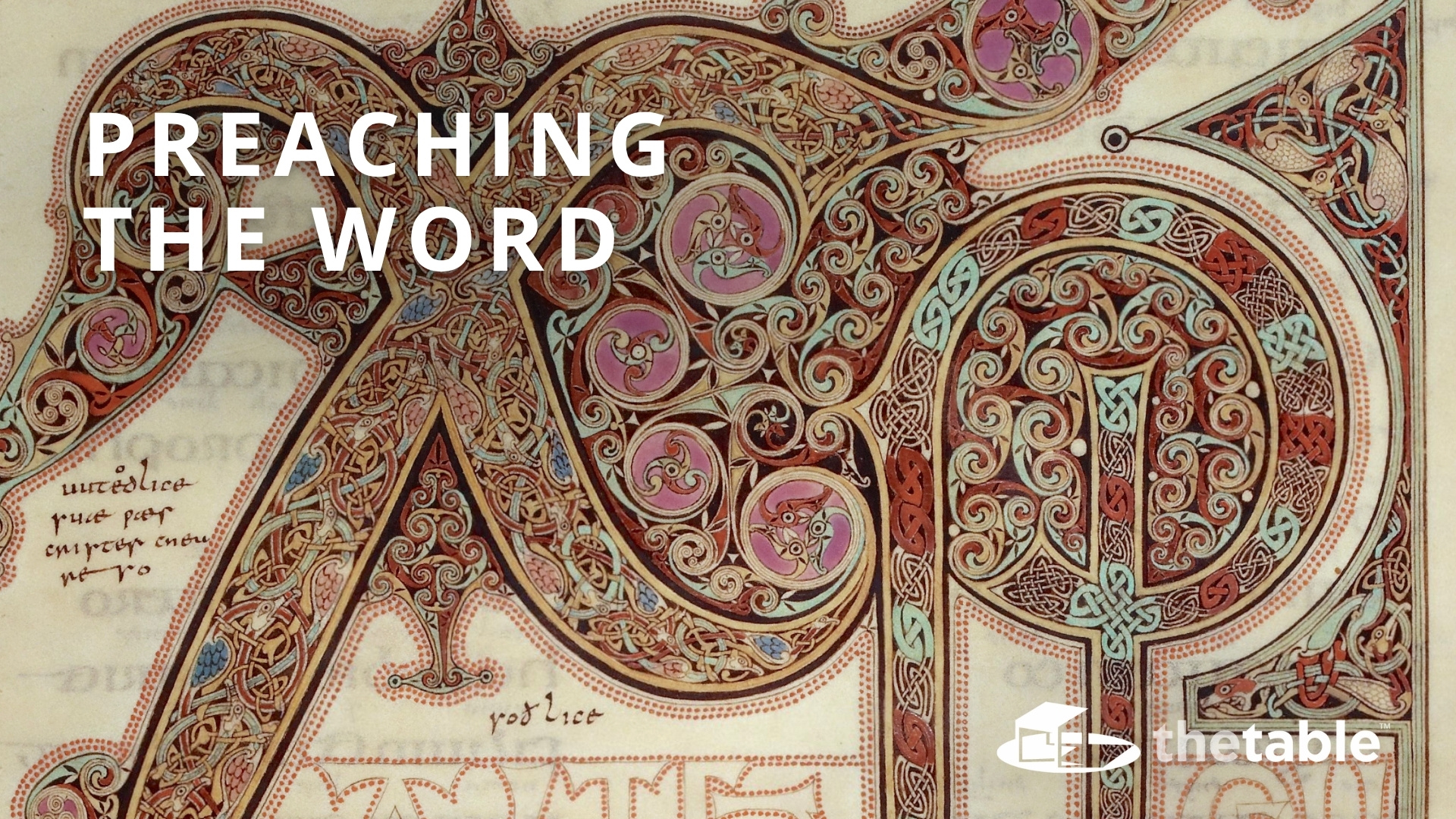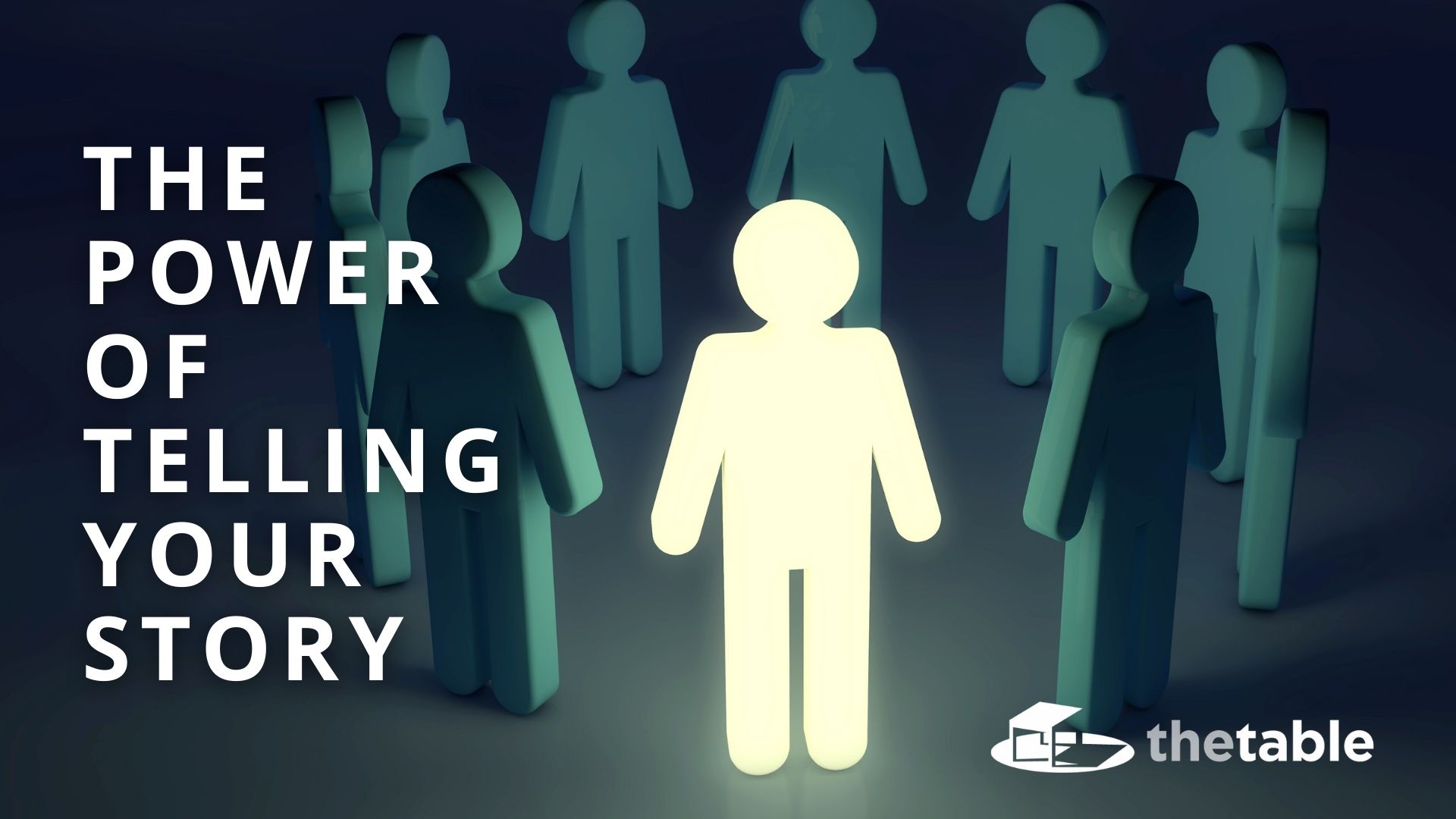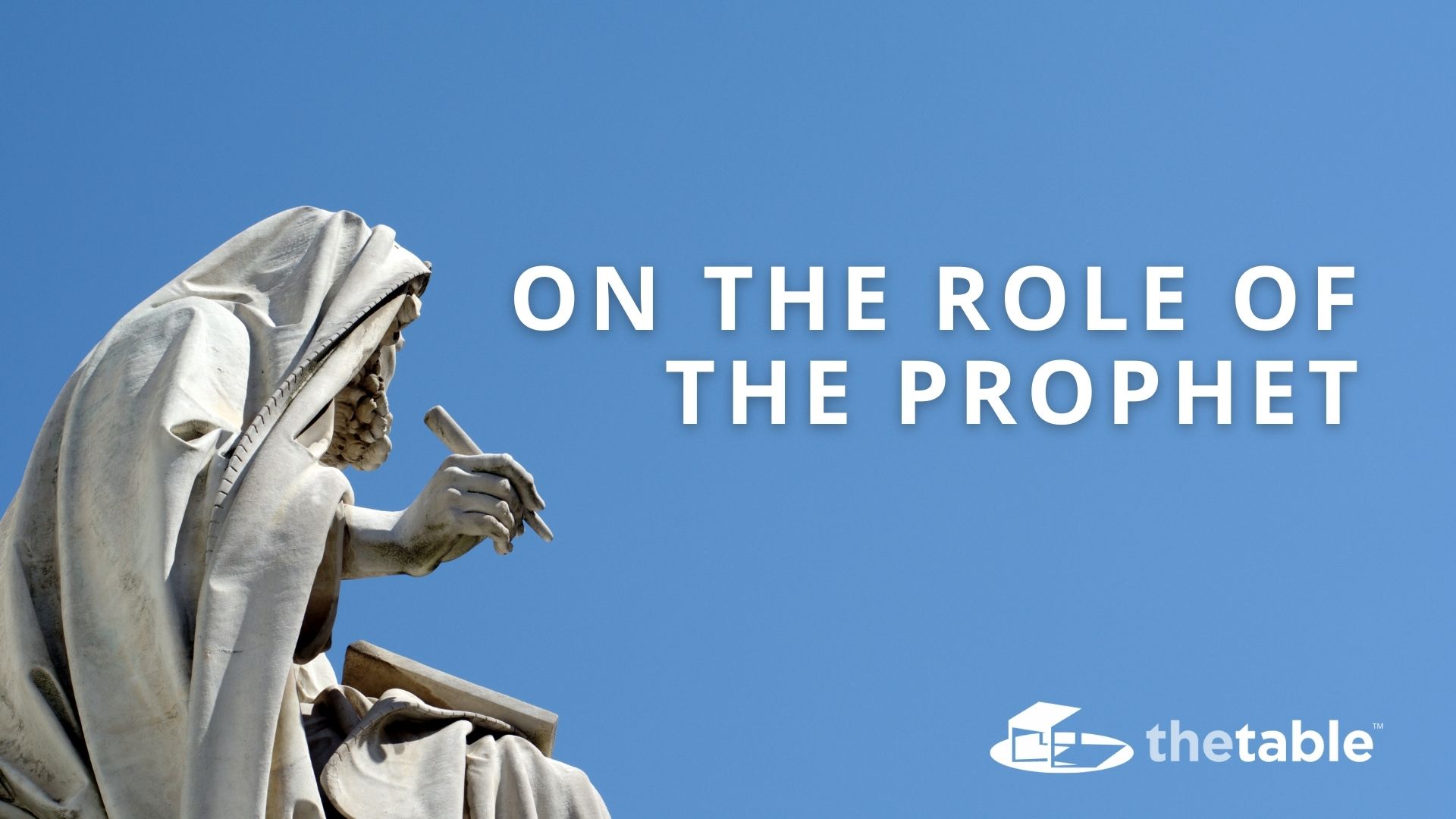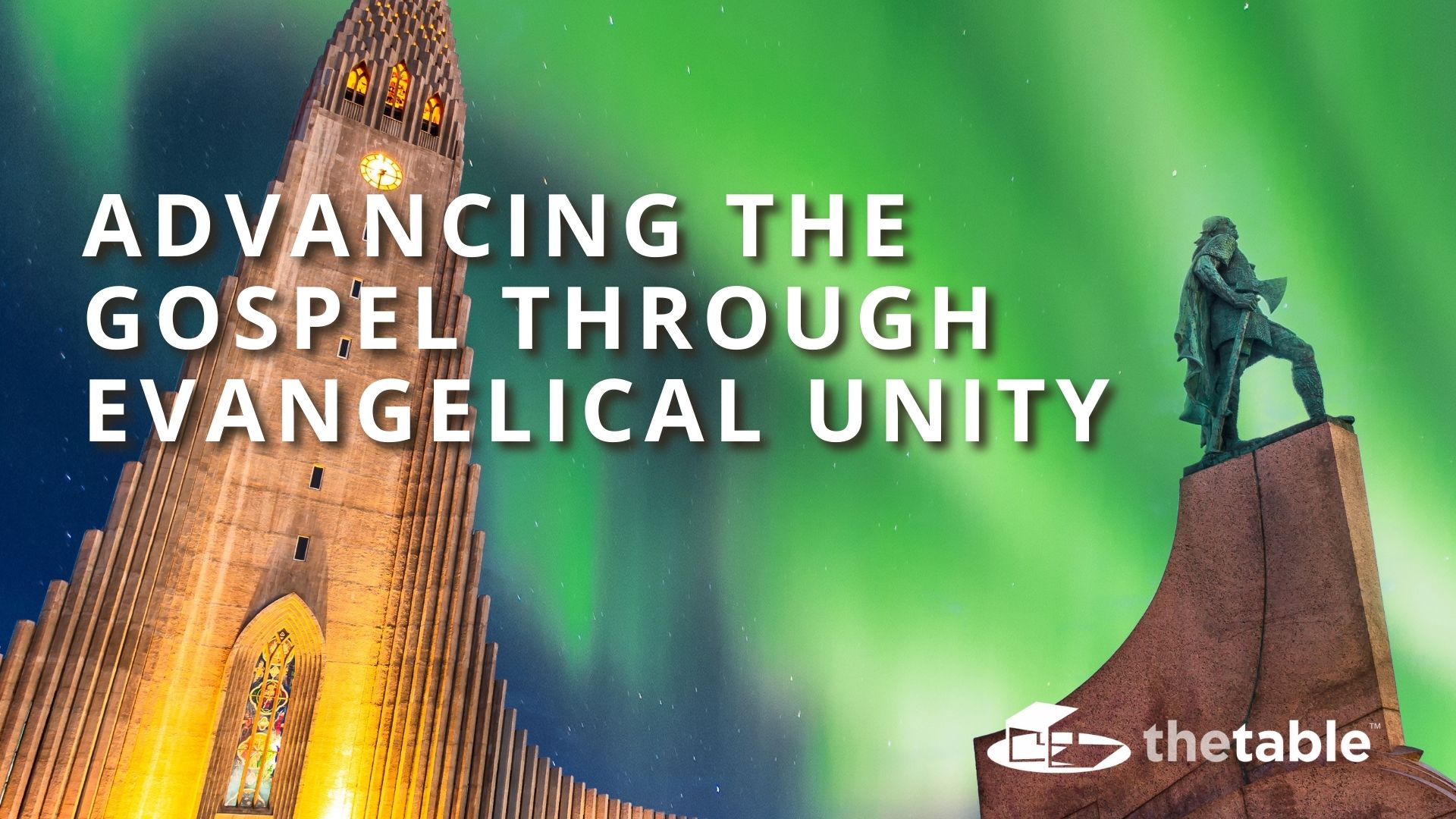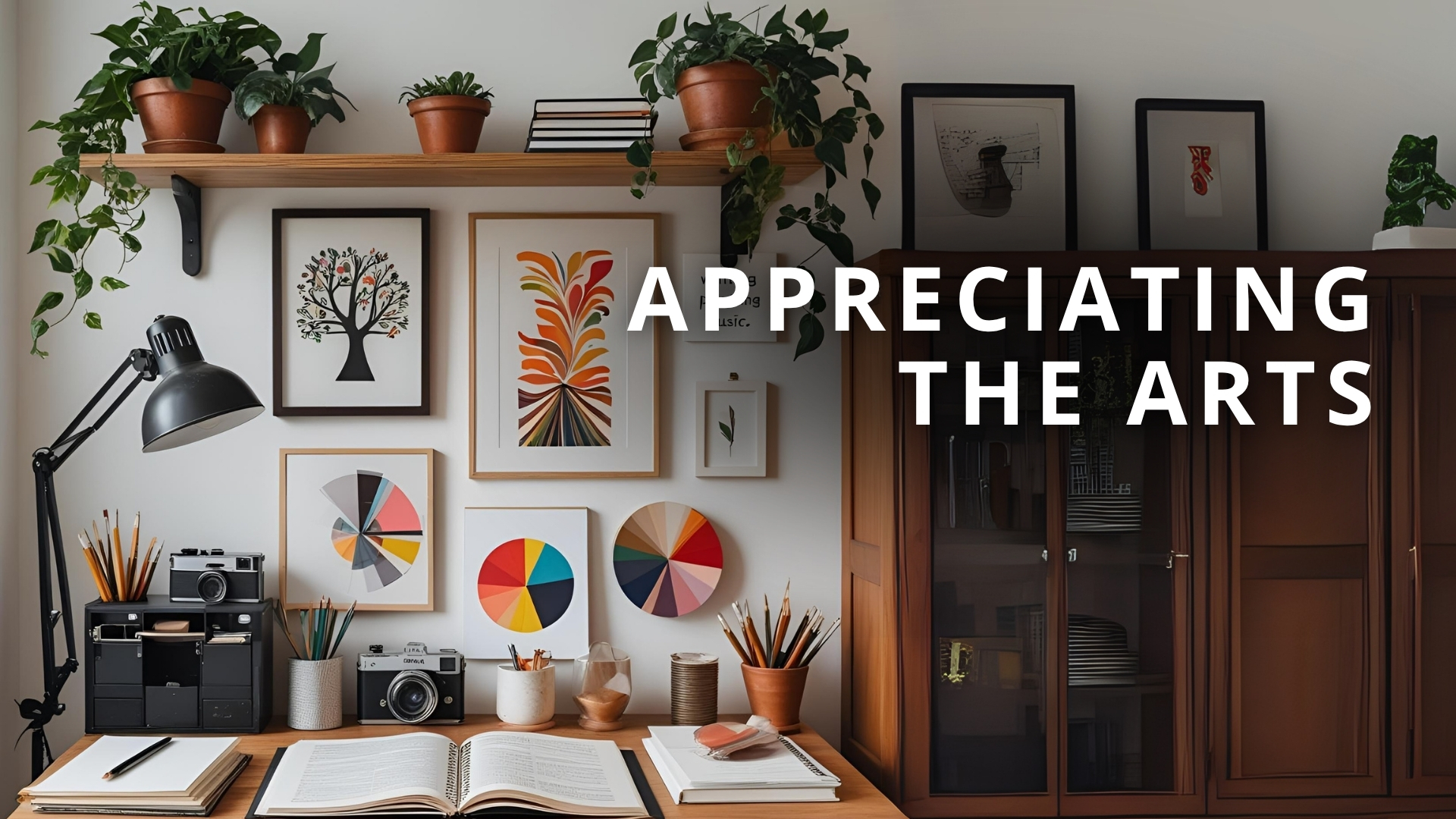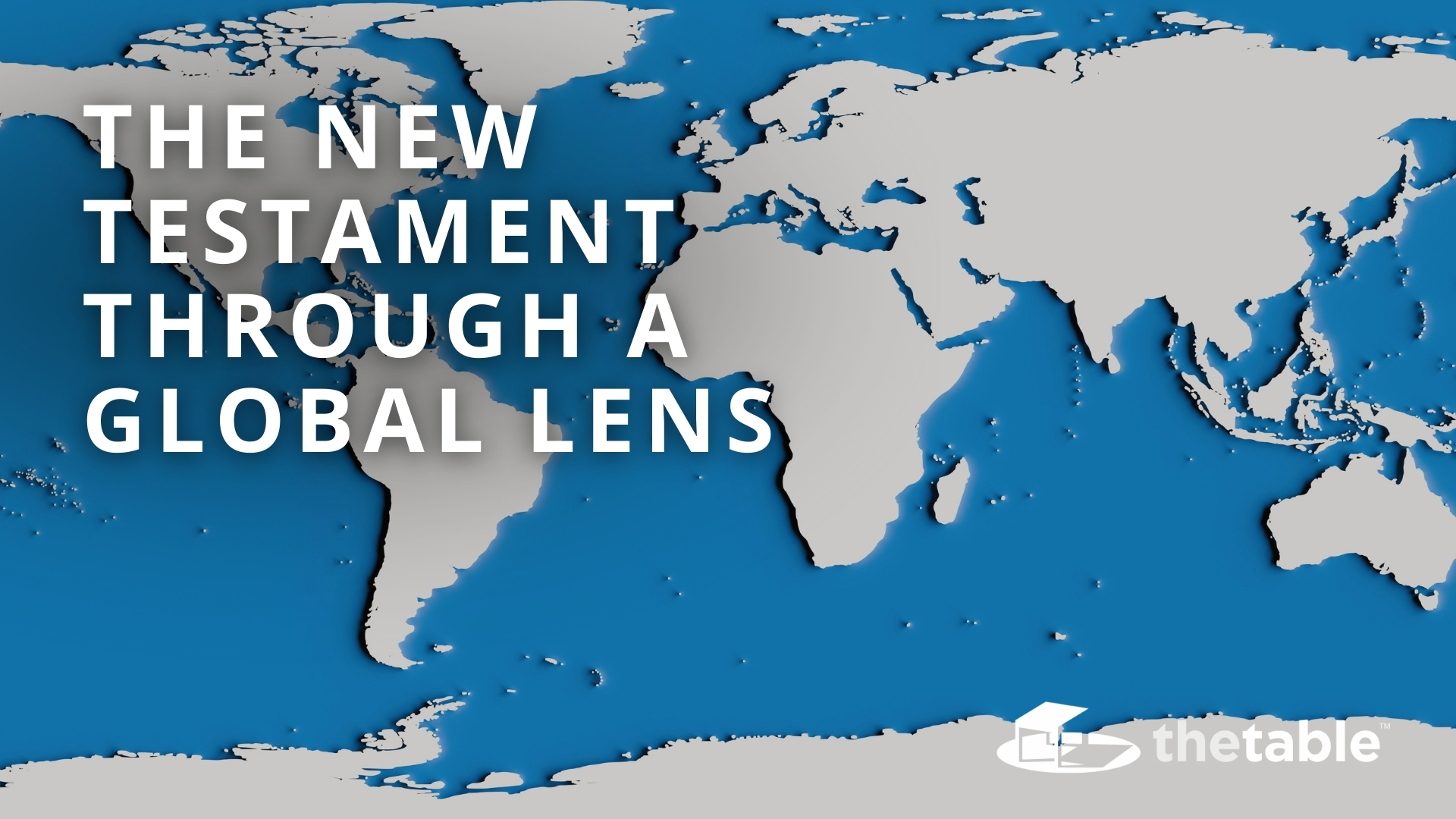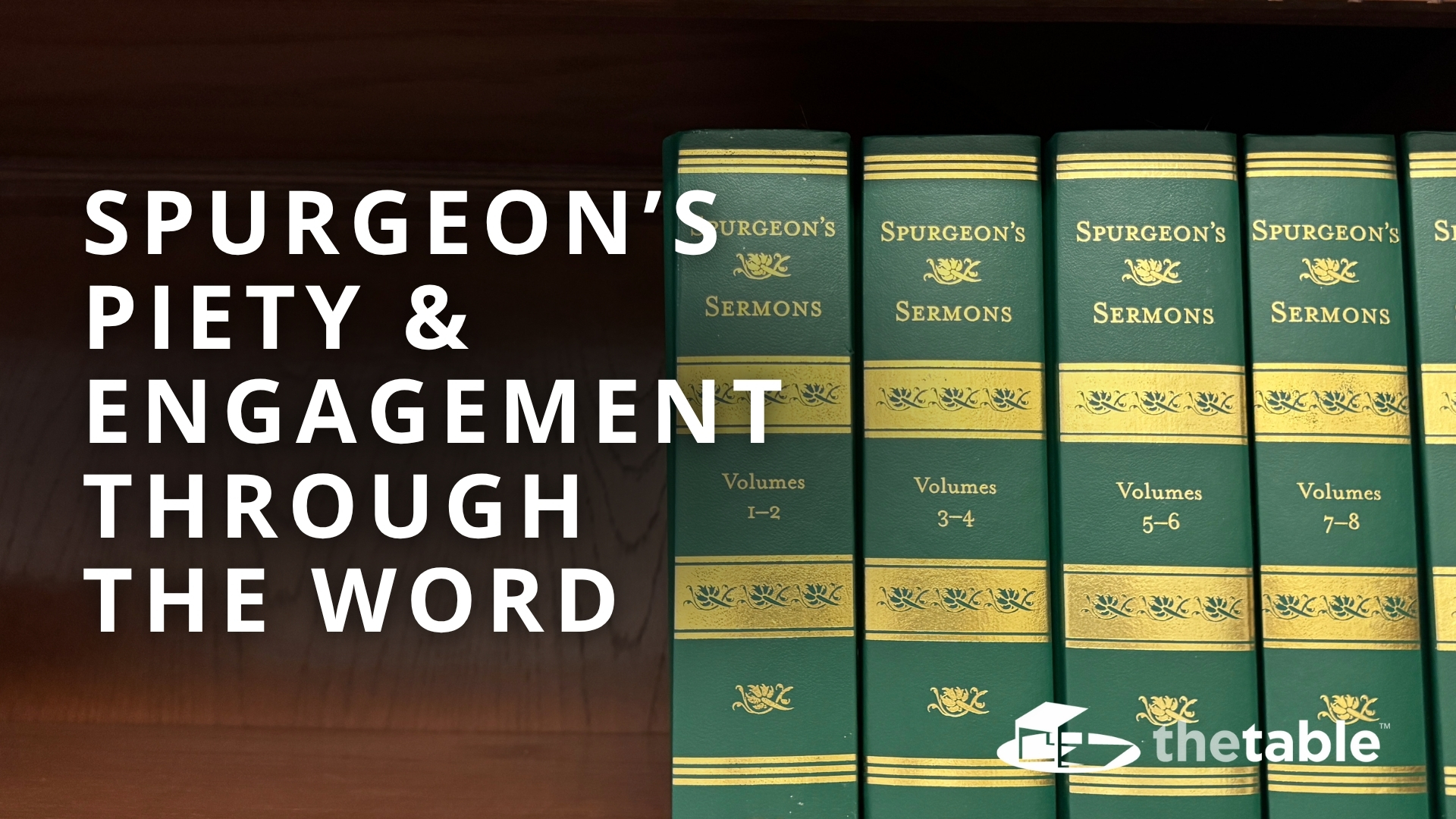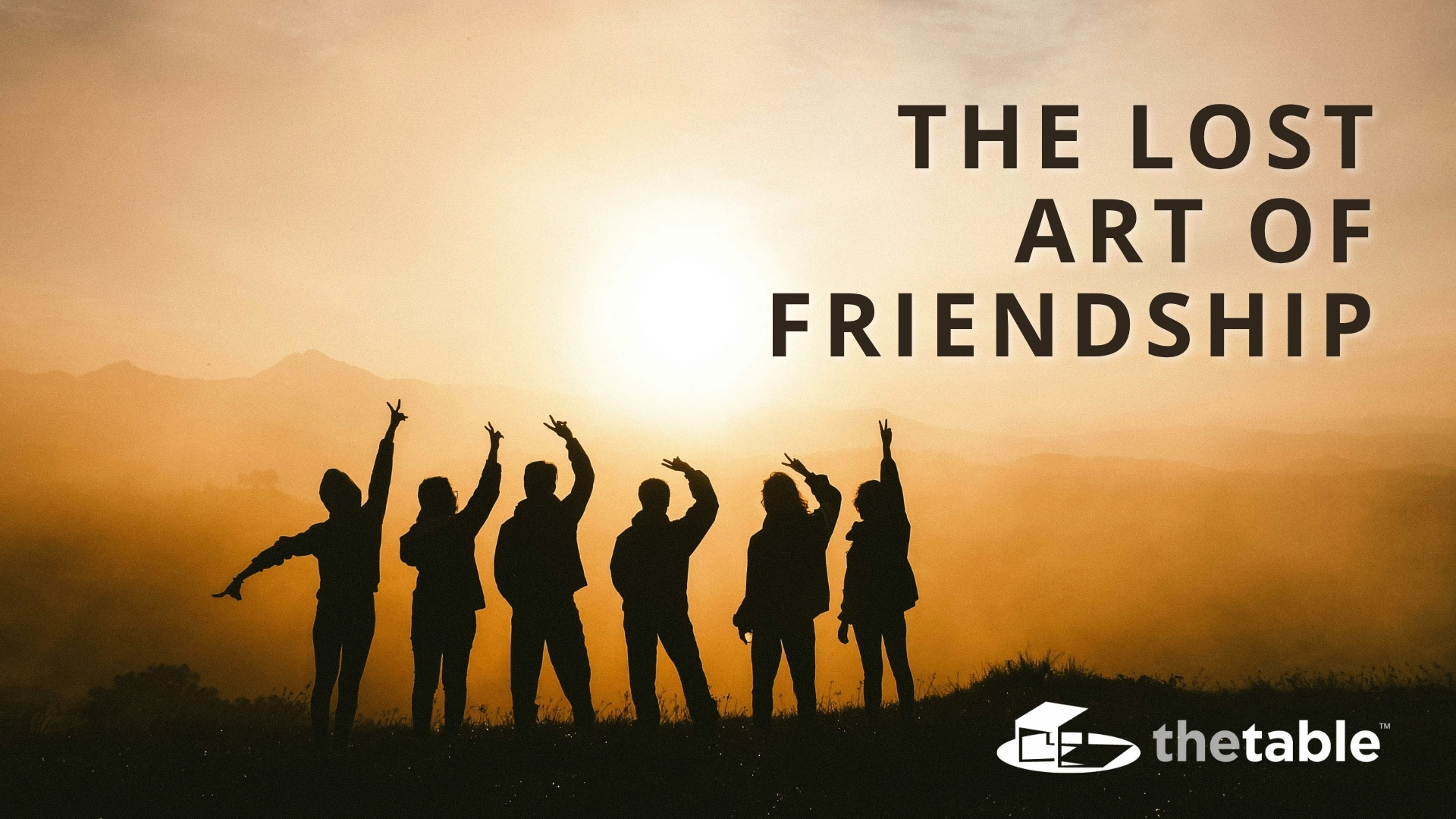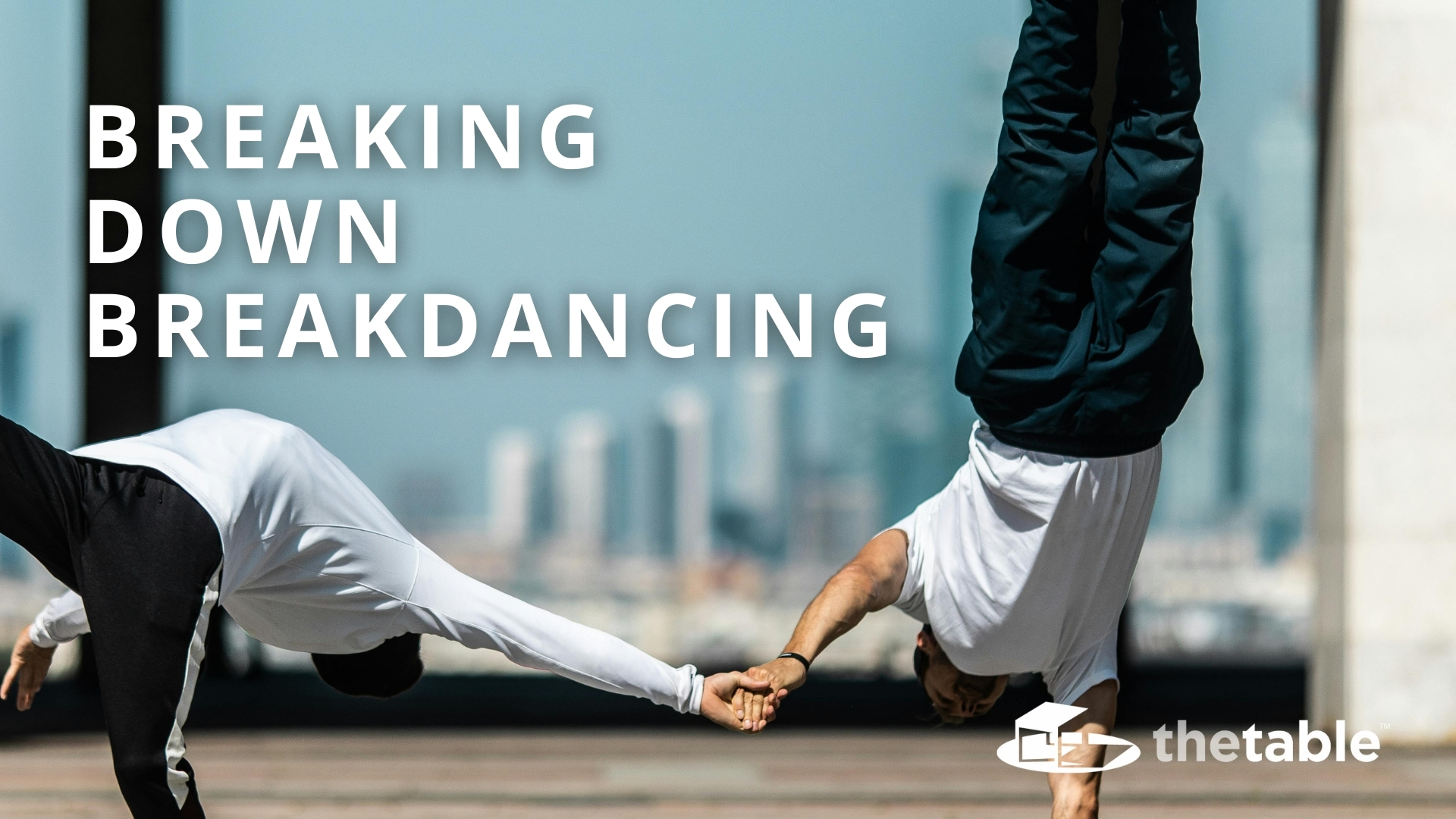The Impact of The Chosen Series – Classic
Description
Darrell Bock:
Welcome to The Table where we discuss issues of God and culture to show the relevance of theology to everyday life. I'm Darrell Bock, executive director for cultural engagement at the Hendricks Center here at Dallas Theological Seminary. And my guest today is Stan Jantz, who leads Come and See in its mission to share the authentic Jesus with 1 billion people, that's a lot of folks, and it's bigger than most church services I've ever been in. And after serving as president of one of the nation's largest Christian bookstores, he began a writing career that has produced 75 books with more than 4 million copies sold.
He served in leadership roles with several Christian publishers, and as president of the Evangelical Christian Publishers Association, he served 25 years on the board of trustees at Biola University. He and his wife Karen just celebrated their 50th anniversary, and just found out about that. He lives in Huntington Beach, California, deeply involved with Bayside Church in Orange County, and they have two children. So Stan, welcome, but if I say Come and See, most people will say, "well, what in the world is that?" But if I say The Chosen, I bet they will understand why we're talking to you. So two questions, what is a nice guy like you doing in a gig like this? And then secondly, explain the relationship between Come and See and The Chosen.
Stan Jantz:
Thank you, Dr. Bock, it's a pleasure to be with you. And yeah, what am I doing? My whole life has been around Christian content. As you said in your intro, I was involved in Christian book selling for years and years and then got involved in Christian publishing. I've written some books and so it's all content. God is the great producer of content. He obviously got the Bible and he speaks every day through his Holy Spirit and through nature and all of that, and so content is king. And so here I am, I'm just sitting around looking for my next assignment and I got a call from Mark Green. Mark is the board chair of Come and See and I'll explain Come and See in just a minute. And he says, "Hey, I'm going to come out and talk to you about something." I didn't know what it was, but two weeks before I had seen the very first episode of The Chosen, had never seen it before.
Now, you've got to note something about me. Growing up in a Christian bookstore environment, and I later ran the stores for 25 years, I was around a lot of Christian media. We had from 16 millimeter films the churches used to show on Sunday night and then video, and I was never really all that impressed with what Christian media was doing. Now, the greater good is you're talking about the gospel and you're presenting that and you're telling stories of people who come to faith, but the quality just lacks. So, I was reluctant. I'd heard of The Chosen and had never seen it, but I got invited. Biola University sponsored a special showing of episode one of season one and they invited me to go, so I went and I was so impressed, and I've talked to many people who feel the same way. This was a different level of quality in storytelling.
And after that, two weeks after that, I got this call, and so we got together, not knowing what the other was going to talk about, but I started gushing about The Chosen, what a fantastic series it was telling the story. And I'd only seen one episode, but I said it's so authentic, it's real, it's biblical. And then Mr. Green had this wry smile on his face, he says, "Well, that's what I'm here to talk to you about. We're going to start a nonprofit that will assist and help in The Chosen, making sure that all seven seasons get made and that it's translated into 600 languages and that it remains free for all. So, that's what Come and See does. We are the nonprofit, we've come alongside The Chosen, and our goal is to reach 1 billion people with the authentic Jesus, the Jesus from scripture, but a Jesus that we can relate to and that is real and he is living.
And so, we are now in our second year, and we came along after the first three seasons we're done, but now season four of course has been in theaters, it'll soon be in the app, and streaming after that. And right now they're in production on season five. So, we're on a fast moving train and it's great to be a part of it, but we are so grateful that more than 100,000 people have given to Come and See for the purpose I just gave you to reach those billion people and use The Chosen as a way to do that.
Darrell Bock:
Well, I heard about Come and See at an event that I was at last November in which we were actually discussing the church and its witness in the world in which there was a segment dedicated to media and what was going on with Chosen and Come and See was introduced to us. I was there with about 200 other Christian leaders and something the Barna Group hosted in Fort Worth. And the moment I heard it, I went, "Well, this is pretty interesting." It's an immense vision, to put the amount of media material that is being produced for the series into 160 different languages, which does a pretty good job of blanketing most of the world is a huge assignment. So, let's talk a little bit about what that takes and then I'll come back to The Chosen. Have you started in on translating in any of the languages already and where does that sit?
Stan Jantz:
Dr. Bock, it's even greater. It's actually 600 languages.
Darrell Bock:
Oh, wow.
Stan Jantz:
So, it's never been done. Now, The Jesus Film has been in over 1,000 languages, but we're talking a single two-hour movie. The Chosen has eight episodes per season, and eventually there will be seven seasons. We're talking 56 episodes, multiple characters throughout, so it's an immense job and it's never been done at this scale with a TV series like this.
Darrell Bock:
So if I'm doing the math real quick, what is that, 560 hours of recording or thereabouts?
Stan Jantz:
Exactly, some are a little less than an hour, so 50 hours would be real close. And the thing of it is too though, because you have these multiple characters and those of you, your listeners have watched The Chosen, in any given episode, there may be 10, 12, 15 characters. Even in a typical TV show, you may have eight to 10 it would be max. So, they have way more than that. And so when you're talking about the translation, and this is… I'm learning so much about it, but God has blessed us. We have a gentleman in place, his name is Rick Dempsey. He worked for Disney for 35 years. He's a believer, worked for Disney for 35 years, overseeing all of their translation, and what they call localization for the Disney feature films and animated features. And what localization means, and you would know this in terms of being a Bible scholar, when you translate something, it isn't just a matter of say, "Okay, what's the language? We're going to put it in that language and then we're good to go."
There are idioms, there are nuances, there are phrases that don't necessarily translate like that word for word. You have to be able to get a sense of what that language will do with that script. So, we work with subject matter experts, and these are typically pastors who are in country or they could be theologians who are in a particular country, particular language, they review then the initial translated copy, which has not yet been dubbed or even subtitled and give us feedback and responding to, will this play in Ethiopia or in Brazil or in Nigeria or India? And of course, India's got 40 languages just by itself.
Darrell Bock:
That's right, yeah.
Stan Jantz:
You have to be able to do this. These subject matter experts are of vital importance, and then the process of either dubbing or subtitling, sometimes both, but we think at the end of the day we'll have about of those 600 languages, about 100 will be fully dubbed, and then all of them will have subtitles as needed. And we already are seeing… We've already done 50 languages for seasons one through three. We just hit a milestone just about 10 days ago and hit that number, and it's an extraordinary task. And again, were it not for the professionals that do this language dubbing and that kind of thing, plus the volunteers, the subject matter experts, we just couldn't do it.
But I was just in Brazil two weeks ago, they did a national premiere for season four, episodes one and two, so it's like a season four premiere. And so, we did the dubbing into Brazilian Portuguese, and then they showed it in a theater for the premiere, and then it opened in 600 languages that following weekend, and the reports that came back as they were very pleased with the quality and the level of the dub, because there's nothing worse than a bad dub that can detract from a really good film or TV show.
And so, they were very pleased in that, but that quality takes a lot of effort and care, and especially as you do the dub that you get a voice actors to actually take that and then voice it to… Because you're not changing the lips, they're still speaking English on screen. So, you've got to match that up, and it's a beautiful, beautiful job. People can go to our website, in comeandsee.net, and click at the top under languages, and there's a video that shows a sample of 14 languages in a certain scene. The scene is actually the paralytic being lowered through the roof.
Darrell Bock:
Yeah, I've seen that video.
Stan Jantz:
Have you seen that? Yeah, it's really, really helpful. And to see what that sounds like in 14 languages, it's very inspiring.
Darrell Bock:
Interesting, so I take it then you've got to get a variety of voices to dub the language for each

